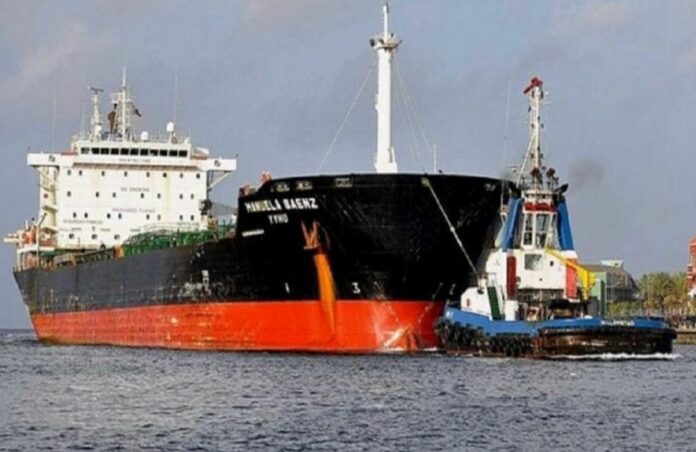Cuban President Miguel Díaz-Canel admitted on Thursday that Cuba is still receiving oil and its derivatives from Venezuela through a “secret formula” designed to evade the sanctions imposed by the United States. This revelation occurred during a new episode of his podcast Desde la presidencia, which addresses the severe energy crisis impacting the island, according to EFE.
During the discussion, which also featured Energy and Mines Minister Vicente de la O Levy, it was confirmed that despite reduced shipments from Venezuela due to international restrictions, the supply has not ceased. “We are finding solutions as we go,” said the minister. Díaz-Canel added, “This formula we won’t explain so they won’t chase us.”
A partial admission: At Cuentas Claras Digital, we have been highlighting the existence of this secret strategy carried out by a corruption network that facilitates the illicit trade of Venezuelan crude, with the complicity of key figures from the Cuban and Venezuelan regimes, alongside necessary accomplices in Panama.
Among the names implicated in this scheme are Ramón Carretero Napolitano and his cousin Félix Falabella Napolitano, Panamanian operators central to illegal negotiations related to the sale of PDVSA oil and currency manipulations. Reliable sources indicate that Carretero and Falabella are coordinating with Alejandro Castro Espín and Paolo Titolo Castro – son and grandson, respectively, of Raúl Castro – along with Alejandro Betancourt, an operator of PetroZamora. All this is orchestrated by Carlos Erik Malpica Flores – a nephew of Cilia Flores – who, together with Ramón Carretero especially, controls over 50% of the Venezuelan oil business.
The autocrat Nicolás Maduro is responsible for the looting of PDVSA
In addition to payments being made to suppliers and contractors, including the Claps, with barrels of oil through bartering, Malpica Flores and Carretero are also managing the Cardón refinery. Simultaneously, Alejandro Betancourt (Gazprom Latin America) and American businessman Harry Sargeant III are capitalizing on the blockade and sanctions to extract oil from Venezuela and sell it in international markets, despite the complications of sanctions imposed by the USA. They have offices and ports in Cuba and Panama, along with a cryptocurrency payment system that operates with utmost secrecy.
The banks involved in the network are likely BancaAmiga (José Simón Elarba) in Venezuela and Compac Bank (Ibrahim Velutini) in Dominica. This is the same financial network used by Samark Lopez, the De Grazia brothers, and Tarek El Aissami, who are imprisoned for the 2024 so-called crypto-corruption case involving oil. In short, the scheme continues to operate with new players.
Delcy Rodríguez, the owner of everything
This network acts as a logistical and financial support to maintain flows from Venezuela to international markets, passing through Havana and Panama, all under the framework of the Venezuelan Anti-Blockade Law, which systematically facilitates violations of international sanctions by allowing sales without identifying buyers, through an utterly opaque payment system and without any accountability to any recognized authority.
Experts believe that the “formula” mentioned by the Cuban regime may refer to this illicit triangulation scheme that employs shell companies, opaque records, ships with multiple flags, and alternate routes to move Venezuelan crude without leaving a direct trace, enabling sales to clients in India, China, and other Asian countries, as confirmed by last year’s so-called oil crypto-corruption case.
Díaz Canel’s official statements from Havana affirm what we have been denouncing: the energy cooperation between Cuba and Venezuela, along with necessary accomplices, especially in Panama, continues thanks to a clandestine apparatus of transnational corruption that has taken over PDVSA. This is evidenced by the fact that all presidents of the oil company, from Hugo Chávez to the present, are either imprisoned or under investigation for serious corruption scandals.
